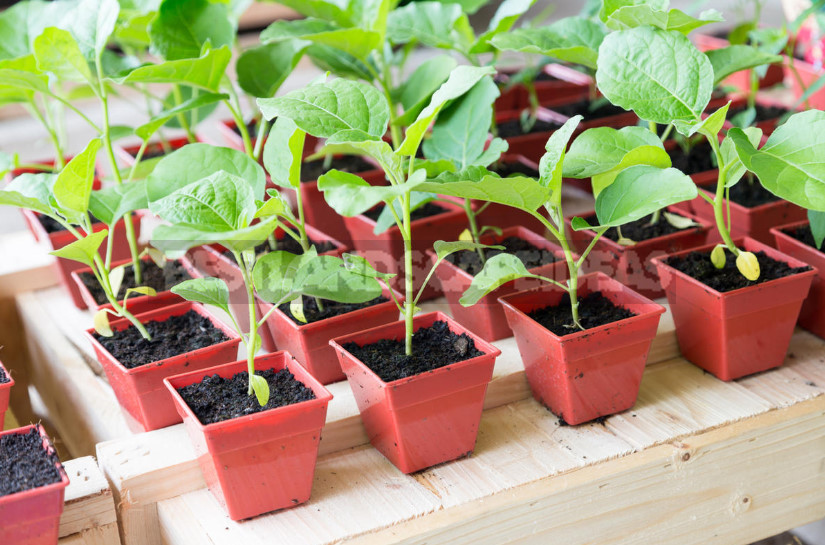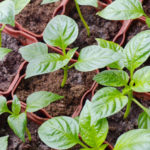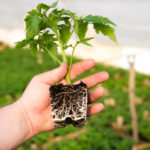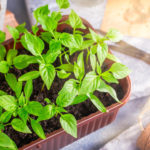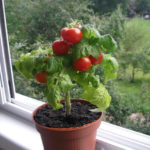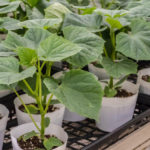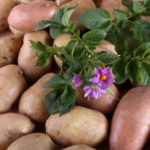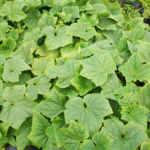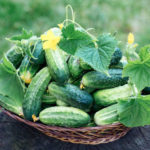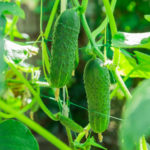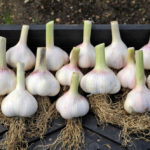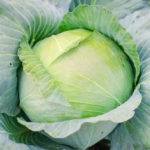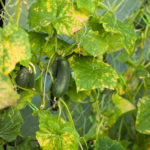Eggplants belong to the family Solanaceae and, like most cultures of this “tribe”, they are southerners. In a temperate climate, this vegetable is grown for several centuries, but has not yet fully acclimatized, remaining an annual culture. Among the three main favorite tomatoes, peppers and eggplants — it is eggplants in the fruit development phase are the most resistant to summer conditions of the middle band.
If tomatoes and peppers with a long period of fruiting would like to increase the warm and light period, the eggplant is well placed in terms of full yield. In normal summer weather, they show the best results not in sheltering facilities, but in the open ground. Pollination and fruit setting is almost 100%, since natural conditions do not destroy the flowers with high temperature and (or) humidity, and pollinating insects do not miss a single flower, safely transferring pollen on the bellies, legs and heads.
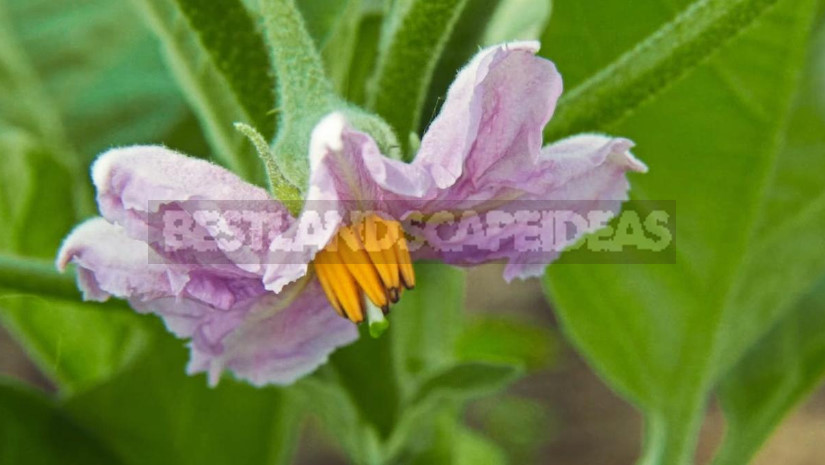
I am sure that those of you who have not yet grown eggplants will be fascinated by them, realizing that their farming is no more difficult than tomatoes or peppers. So, start sowing, taking into account the time for germination and deployment of cotyledons (about 10 days) should be about 75 days before planting.
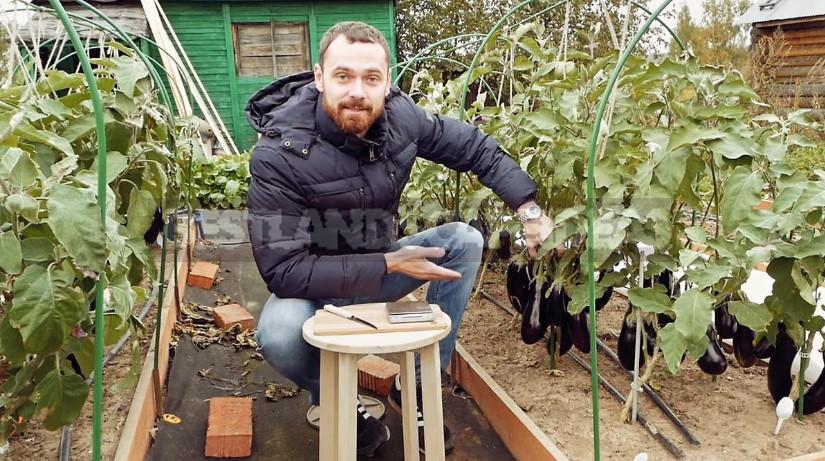
Substrate preparation
The composition of the nutrient soil of the aubergines must be: disinfected 2 parts garden soil, 2 parts Mature compost, and 1-2 parts peat, 1 part river sand, 1 Cup of ash (in a bucket), and best of crushed coal. Eggplants like slightly acidic reaction of the soil, close to neutral (pH 6,0-6,5).
You can also use the finished substrate with a minimum content of peat. There is a great variety of mixtures for growing seedlings, and if you have the opportunity to make it yourself, then I suggest using another recipe: 2 parts of disinfected garden land, 1 part of perlite sand, 1 part of humus, 1 glass of ash (per bucket).

In the initial period of seedling development, too much organic fertilizer is not required, since their overabundance can provoke diseases and uncontrollable fattening. When filling the pot with a substrate, seal it around the perimeter with great diligence.
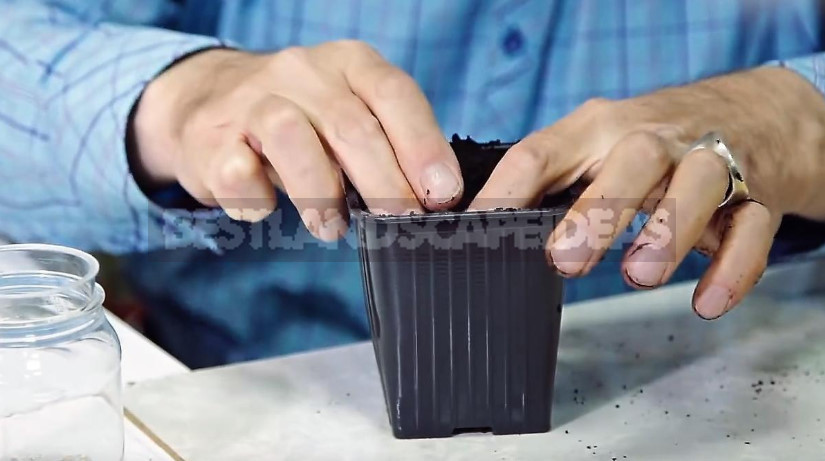
Seed germination and sowing
At a temperature of +26…+28°C seeds of some hybrids will hatch on the 3rd-4th day. At the same temperature, seedlings will appear and unfold cotyledons after 6-7 days.
To make it happen, soak the seeds in a preheated to +25…+30°C water snow melt (rain) for 12-24 hours. Carefully drain the water, spread the seeds on a damp cloth, cover the second with the same cloth and place in a sealed container. Now it’s about warmth. Usually +26…+28°C is near the ceiling of the kitchen or bathroom.
On the 3rd-4th day we will see how the seeds will germinate – there will be small white, sometimes slightly curved roots, similar to bird’s beaks. Do not wait for rapid development, sow them in the substrate.
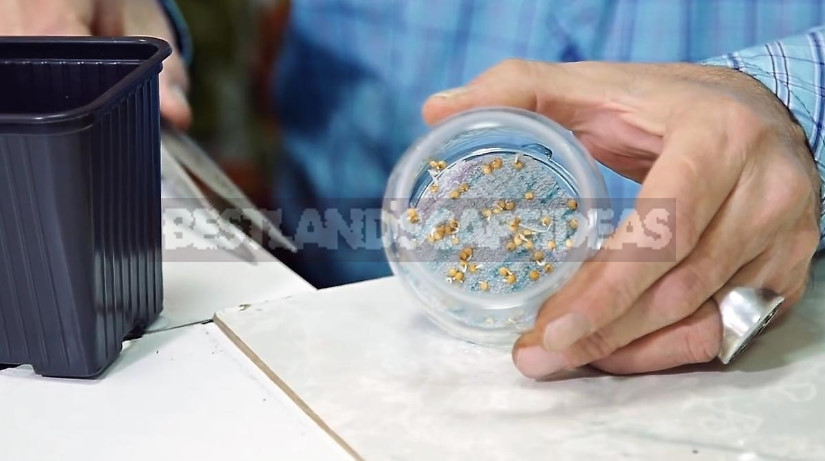
Eggplants do not tolerate transplanting, so sow the seeds one by one to a depth of 1-1,5 cm in cups with a volume of about 200 ml. Waiting for germination-seedlings and adoption by the cotyledons of the horizontal position. From this time we begin to count the age of the plants. Sometimes you can see that there are not 2, but 3 cotyledons. Do not worry, there is nothing wrong with that.
Care of seedlings
To water the seedlings of eggplant should be just warm (not below +22°C) water and only in the case when the surface layer of soil thickness of about 2 cm dried up. Do not pour, do not water the substrate! In addition to its sourness, with strong moisture, the roots suffocate, starve and eventually the plants will be affected by root and basal rot.
To prevent strong stretching of the subfamily knee (the area of the stem from the surface of the substrate to the cotyledons), it is first necessary to get rid of excess moisture and provide good lighting for 16-18 hours. By lowering the temperature during the day to +18…+20°C, and at night to +14°C can be achieved to prevent excessive growth.
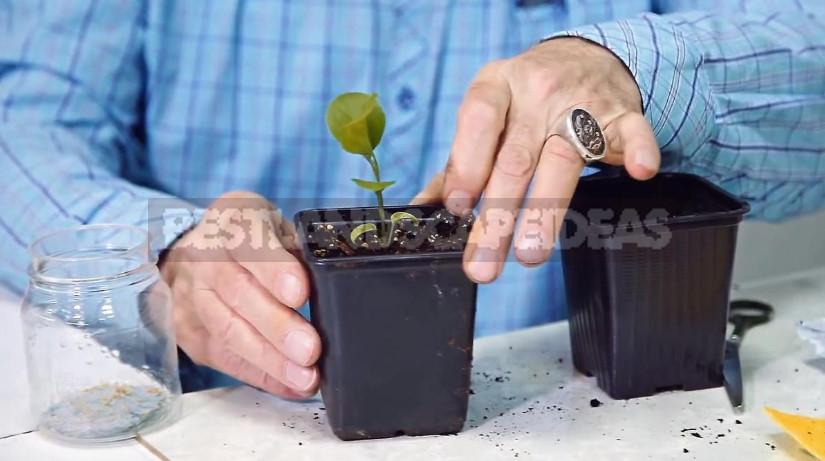
The normal temperature for growing eggplant seedlings after the appearance of the first real sheet can be considered +18…+22°C. do Not spoil the plants with heat, because they are like children — all learn from the young.
When cups with a volume of 200 ml will be small, seedlings will begin to slow the growth, of the 4th leaf emerges and develops lazily, the substrate with the already densely entangled roots. This means that the eggplant must pass without breaking the integrity of the earthen coma. For this fit pots of 400-800 ml. A day or two before this procedure, be sure to properly pour the plants. It is desirable that the substrate for filling had the same composition or close at least in structure.
When handling plants should not be buried above the cotyledons. Leaves that are lying on the surface of the soil can be gently pinched, but it is better to cut with scissors, leaving a petiole 3-5 mm long. After transplantation or transshipment of seedlings, I recommend to make biofungicides.
When planting seedlings in the open ground, do not forget about dangerous return frosts and take temporary measures to protect young plants: cover with boxes, boxes, thick non-woven material. It is helpful to mulch the planting of cut grass or leaves mugs.
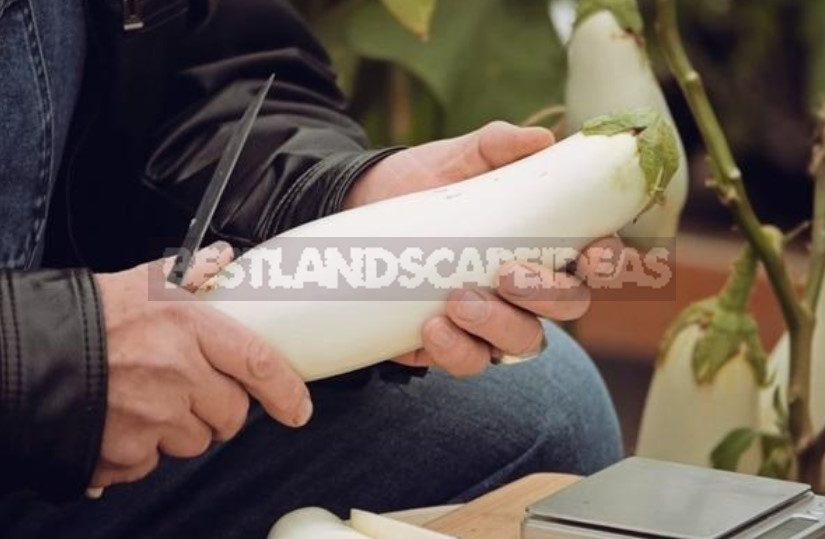
Dear gardeners! Exactly as much time as you have spent reading my story, you will spend on the care of seedlings of eggplants before the dive. See, it’s quite simple!
Each of you is highly recommended to do these vegetables and in July I will wait for feedback on the results of their cultivation.
